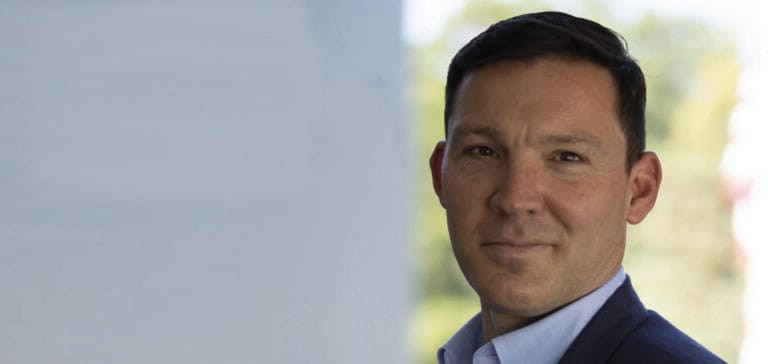- CCT’s acquisition of Global Cold Chain Solutions (GCCS) strengthens its presence in India, with facilities in Hyderabad, Ahmedabad, and Mumbai, enabling closer alignment with the country’s pharmaceutical export hubs and faster, more sustainable supply chains.
- The move supports operational efficiency and environmental goals by localising production, reducing lead times, emissions, and risk exposure, while leveraging India’s multimodal logistics push under the National Logistics Policy and PM Gati Shakti framework.
- CCT combines advanced products, such as Tyvek thermal covers, with region-specific adaptation and training to ensure effective temperature-controlled shipments, while expanding its Asia-Pacific network—including a new hub in Tokyo—to promote circular logistics and knowledge-sharing across the cold chain sector.
As the global demand for temperature-controlled logistics intensifies, CCT’s acquisition of Global Cold Chain Solutions (GCCS) signals more than just corporate growth—it reflects a broader structural shift in how cold chain networks are being localised to serve Asia’s expanding pharmaceutical and life sciences markets.
For Kristof De Smedt, Global Business Unit Director, Cargo Covers at Cold Chain Technologies, the company’s expansion into India is a strategic convergence of innovation, sustainability, and proximity to production. Speaking to Air Cargo Week at the Cold Chain Unbroken 2025 event in Hyderabad, Kristof underscored how CCT’s entry through GCCS, with facilities in Hyderabad, Ahmedabad, and Mumbai, positions the company to align closely with India’s pharmaceutical export base. “We now bring globally proven cold chain performance regionally,” he said. “It’s a good moment for CCT to have boots on the ground.”
A strategic acquisition to serve asia’s pharma epicentre
The acquisition of GCCS, which also maintains a headquarters in Australia, provides CCT with a dual gateway into South and Southeast Asia—a region accounting for nearly 35 percent of global generic drug exports and home to some of the fastest-growing biopharmaceutical clusters. For CCT, the logic is both operational and environmental: manufacturing solutions closer to end markets reduces lead times, carbon emissions, and risk exposure.
“We are already manufacturing in Mumbai and Hyderabad,” Kristof confirmed. “From a sustainability point of view, producing close to the market is better—it makes sense.”
The expansion coincides with India’s rapid ascent as a logistics hub under the National Logistics Policy (NLP) and PM Gati Shakti framework, both of which prioritise multimodal infrastructure and temperature-controlled capacity. With India projected to handle US$650 billion in pharma exports by 2030, according to the Pharmaceuticals Export Promotion Council (Pharmexcil), CCT’s local presence strengthens its capacity to support clients operating under increasingly complex regulatory and climatic conditions.
Technology meets local adaptation
CCT’s product portfolio—particularly its Tyvek thermal covers—illustrates how technology and regional customisation intersect. “Every region has its challenges,” Kristof explained.
“India’s needs are not the same as those in Belgium or Miami. We want to diversify and customise our solutions.”
Unlike traditional insulation-based blankets, Tyvek covers rely on reflection rather than insulation, offering a breathable, waterproof barrier that regulates temperature without trapping condensation. The technology’s adaptability has drawn attention from both pharmaceutical and perishable goods exporters.
The thin, white Tyvek design—manufactured in India for regional use—also represents CCT’s effort to simplify training and product adoption. “We did some educational sessions here in Hyderabad,” Kristof said. “There are many thermal blankets on the market, but users need technical expertise to evaluate them. CCT wants to differentiate by providing that expertise, not just a product.”
Building a sustainable, connected asia-pacific network
CCT’s footprint extends well beyond India. Following the GCCS acquisition, the company has opened a new hub in Tokyo and is developing additional APAC locations to support the repositioning of its Tower Cold Chain containers—reusable blue units designed for long-haul, temperature-sensitive shipments. The expansion underlines a pivot toward circular logistics models that balance commercial viability with sustainability goals.
“With India representing nearly 10% of the world’s population, it’s a key manufacturing and consumption market for us,” Kristof said. “Our focus is not only on growth, but on doing it responsibly.”
Such network expansion is timely. The global cold chain logistics market, valued at US$322 billion in 2024, is forecast to exceed US$520 billion by 2030, driven by pharmaceutical manufacturing shifts to Asia, stricter GDP (Good Distribution Practice) regulations, and the rising sophistication of e-commerce food supply chains.
Knowledge sharing as a strategic tool
Kristof’s appearance at Cold Chain Unbroken 2025 was not merely corporate outreach—it reflected a belief in open collaboration. “These platforms are essential,” he noted. “They bring together stakeholders from across regions. At CCT, we are always eager to share knowledge and contribute productively.”
The theme of “innovation through collaboration”, which he identified as his key takeaway from the event, resonates strongly with the logistics community. As India continues to emerge as both a production powerhouse and a distribution hub for pharmaceuticals, the interplay between foreign expertise and domestic execution is defining the next chapter of its cold chain evolution.





